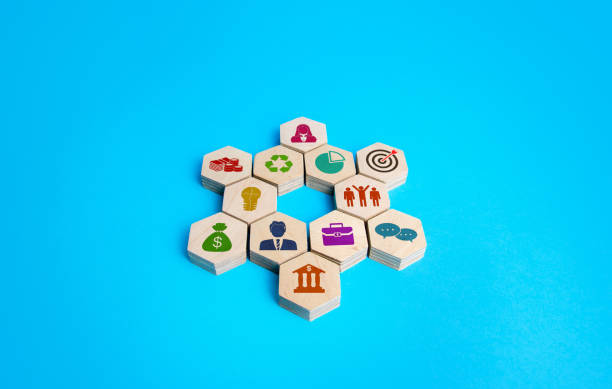Excerpt: Getting a startup off the ground is a cut-throat business in more than one way. You have to deliver an innovative product and outshine your competitors in the race for funds. Impressing prospective investors and increasing the profile of your organization so that it attracts investment in the first place is always a challenge.
Introduction:
The Snowflake Startup Challenge personifies these traits of raising a startup. It brings together early-stage startups from across the globe and challenges them to design the best possible product based on Snowflake’s Data Cloud. After several intensive rounds of evaluation by Snowflake’s expert judges, only a single organization is left standing. They are then awarded up to $500,000 in investment from Snowflake as well as global marketing exposure in partnership with Snowflake. Truly, an invaluable boon for any organization – but only if you can prove yourself to be the best!
The 2022 Snowflake Startup Challenge was the second edition of this competition. Like the 2021 edition, this year’s challenge also saw the participation of a variety of organizations, each of which delivered an ingenious product.
To learn more about Snowflake and its tools and practices, Snowflake Training will help you to gain in-depth knowledge into the technology.
The Snowflake Startup Challenge
Before we can get into the talking about the Snowflake Startup Challenge, it’s essential to learn a little bit about Snowflake, the organization. Founded in July 2012 by Benoit Dageville, Thierry Cruanes, and Marcin Żukowski, Snowflake is one of the leading enterprises in the cloud-computing field today. A data warehousing company, it was ranked first place in the Forbes Cloud 100 in 2019. Buoyed by this vote of confidence, they went on to raise a staggering $3.4 billion with their initial public offering in October 2020 – one of the largest IPOs raised by any software company ever!
The crown jewel of Snowflake’s offerings to the world of tech is the Snowflake Data Cloud. The Data Cloud is a network of thousands of organizations that act as data consumers, providers, and service providers across public clouds. When you’re part of the Data Cloud, you can seamlessly share data with any other member of the Cloud, benefit from the most modern data governance and security protocols, make extensive use of data analytics, and smoothly unify previously siloed data both globally and locally.
The Snowflake Startup Challenge is Snowflake’s unique way to highlight the power of its Data Cloud and drive innovation around it. What do the participating startups get out of it? An opportunity to showcase their products on the biggest stage, and of course, the chance to win a variety of tangible prizes, including the jackpot of $500,000!
The first edition of the Startup Challenge was held in 2021, with seven hundred participants hailing from fifty-six countries. The grand prize eventually went to OverlayAnalytics, whose product combined end-to-end automation with creative design solutions to bring to life an innovative financial reporting solution. In the second and third places were Invoke Learning, whose data analytics platform was designed for educational institutions, and Elysium Analytics, which provided a data-driven security analytics tool.
Now that we’re up to date on the background let’s dive into the nitty-gritty of the Snowflake Startup Challenge 2022!
The Snowflake Startup Challenge 2022
1. The First Stage
The 2022 edition of the Startup Challenge commenced with the announcement of the competition by Snowflake on 5th October 2021. The eligibility criteria for the participating companies were as follows:
- The organization in question must be a legally independent early-stage startup.
- The organization must have accumulated not more than $5 million in funding. It must not have already secured a Series A or priced round of funding.
- The company’s product must be some kind of data app, platform, or tool that utilizes a Snowflake product as a core part of its design.
The participants were required to submit a working application, a pitch deck, and a demo video by 1st March 2022. By April, the participants would be narrowed down to a set of ten semifinalists. This set would be further winnowed down until there were only three finalists left. These three organizations would be given a chance to publicly pitch and demonstrate their products to the judges and audience at Snowflake Summit 2022 in June.
Snowflake’s jury of judges would judge each submission based on the following criteria:
- It’s business potential, including how the startup in question would collaborate with and complement Snowflake.
- The presence of Snowflake is a core component of the product’s architecture. This would include the inclusion of one or more Snowflake features such as Snowflake Secure Data Sharing or Snowpark.
- The uniqueness of the product and the competitive advantage it delivers to its users.
- The experience and ability to execute the ideas of each startup’s leadership team.
2. The Semifinals
By 1st March, more than two hundred and fifty contenders had thrown their hats in the ring for the second edition of the Snowflake startup challenge. Machine learning, artificial intelligence, decision learning, predictive analysis, carbon reduction, and crypto blockchains were just some of the disparate fields in which the Challenge’s contenders worked.
When the dust settled, only ten organizations were still left standing in the semifinal round. The list of semifinalists was announced by Snowflake on 3rd May 2022. The semifinalists for the 2022 Snowflake Startup Challenge were as follows:
- Adaptive Pulse: Aimed at B2B Software as a Service vendor, Adaptive Pulse provided clients with data analytics services to understand their customers’ behavior to reduce customer churn and boost net revenue retention. Their tool analyzed both historical and real-time customer data, including unstructured data from email, phone transcripts, social media, and support tickets.
- Data covers: Datacoves is a turnkey analytics workbench that helps companies implement the components of the modern data stack. It brings to the table proven best practices of software engineering and removes complexity without restricting enterprises to proprietary data solutions.
- Houseware: Houseware is a revenue analytics workbench that enables its clients to construct their internal data apps on the Snowflake Data Cloud. It connects over one hundred and fifty data sources, abstract schemas, columns, and rows into higher-level metrics. It enables clients to create visualizations, actionable signals, and more without needing to code.
- HyperFinity: HyperFinity is a no-code decision intelligence tool that allows decision-makers without technical backgrounds to harness the power of data science and artificial intelligence. Aimed at retailers and brands, it enables them to make the best decisions about their products, pricing, marketing campaigns, etc., without having to splurge on data science and AI personnel.
- Kolena: A testing and evaluation platform for machine learning algorithms, Kolena empowers data science teams to implement high-resolution unit and functional tests for their models. Clients can use Kolena to surface hidden behaviors and failure modes, iterate rapidly and automate testing workflows to efficiently ship error-proofed models.
- Modelbit: Modelbit is a platform intended to facilitate the fast deployment of machine learning models. It enables data scientists to train and deploy machine learning models in the cloud while using their Jupyter notebooks. It connects the notebooks where the models are developed to the modern cloud data stack.
- Ocula Technologies: Ocula Technologies seeks to make artificial intelligence actionable for consumer-facing businesses. Its modules help clients implement their e-commerce conversion, make intelligent decisions concerning product pricing, and deliver insights into customer sentiment and behavior. Setup is straightforward, minimal IT support is necessary, and clients are delivered clear, prioritized recommendations to boost the online side of their business.
- Radiant Labs: Radiant Labs seeks to meet one of the most pressing demands in modern society by offering carbon-footprint reduction solutions to cities, states, and utilities. Its tools, insights, and data generate individual models for millions of buildings to help urban planners, policymakers, and property owners build in the most efficient way possible.
- Sled: Designed specifically for Snowflake offerings, Sled helps users find, understand, and secure their data. Clients can rapidly find assets with a smart search function, understand their underlying data with automated profiling, and maintain comprehensive documentation for all assets. A centralized metric store enables consistent metrics across reports, and data observability features automatically detect any significant changes to the data.
- Sonarverse: Sonarverse is a web3 analytics platform designed for institutions, retail investors, and decentralized applications across major crypto blockchains and protocols. It provides data and business intelligence insights on smart contracts and transaction data via a dashboard and Snowflake Data Marketplace.
3. The Finale
The ten semifinalists for the 2022 edition were then required to submit an investor pitch video. They were also interviewed by the judges to discuss their entry, its product and business strategy, their leadership team, and how they would utilize any investments they received. After intensive evaluations, the judges narrowed down the list of semifinalists to three finalists.
The three finalists were as follows:
- HyperFinity: HyperFinity platform empowered the decision-makers in retailers and consumer packaged good companies to leverage the power of data science and artificial intelligence. Its no-code solution eliminated the need for its users to have any technical background. They utilized Snowflake’s intuitive Snowpark API (used to query and process data in a data pipeline) to create a lightweight, serverless architecture. This gave them a quicker time to release, secured the faster deployment of new features, and enabled the cost-effective creation of scalable, compute-intensive processes.
HyperFinity also utilized Snowflake’s data-sharing features to securely and speedily exchange information with their clients. One of HyperFinity’s leading clients is Studio Retail, a British home shopping company. HyperFinity supported the studio in effectively using promotions and marketing campaigns, creating customer-centric category merchandise, and delivering personalized digital marketing.
- Modelbit: Modelbit seeks to enable data scientists to join the cloud computing revolution that has taken the world of computing by storm. It connects data scientists directly to the data cloud by directly running their machine learning workloads in their Snowflake instances.
Modelbit utilizes Snowpark for Python to run machine learning models in Snowflake so that data scientists can deploy their models directly from their Jupyter notebooks. By running machine learning workloads adjacent to their training and scoring data, efficiency is boosted.
Amongst Modelbit’s clients is Bambee, a vendor of human resource management solutions. They are leveraging Modelbit’s tool to deploy a machine learning model that scores inbound sales leads in both Snowflake and their own Bambee website. This allows Bambee to deliver custom experiences to each prospective lead based on their lead score.
- Houseware: Houseware aims to construct a scalable, flexible, and collaborative data app ecosystem that provides data access beyond just data teams. Workers are enabled to build data apps atop their Snowflake instance or on a Houseware-managed data cloud warehouse without writing their code.
By leveraging the Snowpark API and UDFs, workers were empowered to run their pre-defined machine learning models for forecasting, churn, and other predictive analytics scenarios.
Houseware services are notably being utilized by Quizizz, an engagement-driven learning platform. Utilizing Houseware, Quizizz was able to surface reliable metrics and create a culture of experimentation amongst their go-to-market teams.
These three organizations were allowed to present their products before the judges’ panel and an audience drawn from across the world at the 2022 Snowflake Summit held in June in Las Vegas. The finalists were evaluated based on their innovation, market opportunity, business potential, how they leveraged Snowflake, and their ability to execute their vision.
At the end of the Summit, Houseware was declared the champion of the 2022 edition! In the words of judge Jayshree Ullal, CEO of Arista Networks, Houseware “did a great job simplifying complex things and making them simple to understand.”
Houseware was rewarded for its efforts with up to $500,000 in investments from Snowflake. The efforts of the two runners-up, Modelbit and HyperFinity, didn’t go unnoticed either. Each runner-up was granted up to $250,000 in funding from Snowflake.
Conclusion:
In the words of Bryan Shupe, the CEO of OverlayAnalytics, the champion of the 2021 edition of the Snowflake Startup Challenge, “It’s an incredible opportunity and amazingly fun to go through it with your teammates, and it helps you rally around the core themes and values of what your company’s going to become.” This is a testament to the effectiveness of the Challenge as a means to promote innovation and bring the best products in the Snowflake ecosystem to global notice.
The products demonstrated in the past editions of the Startup Challenge are already having a demonstrable effect in driving innovation, profits, and other forms of positive change in the world today. We do not doubt that the Challenge will continue to serve as a means to drive growth in the years to come as well!
Author Bio:
I am Korra Shailaja, Working as a Digital Marketing professional & Content writer in MindMajix Online Training. I Have good experience in handling technical content writing and aspire to learn new things to grow professionally. I am an expert in delivering content on the market demanding technologies like Mulesoft Training, Dell Boomi Tutorial, Elasticsearch Course, Fortinet Course, PostgreSQL Training, Splunk, Success Factor, Denodo, etc.















